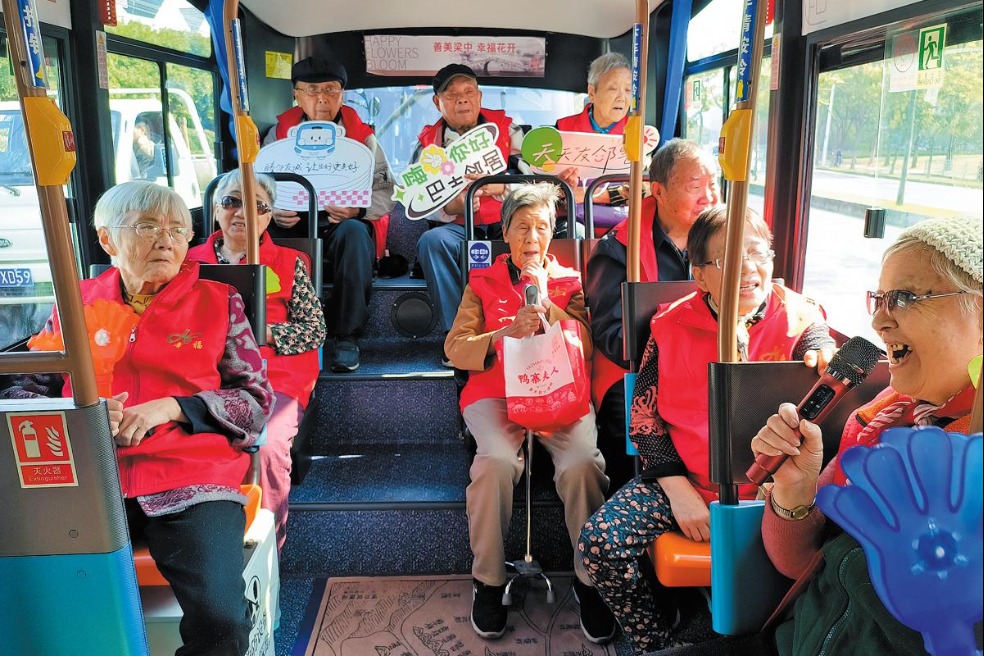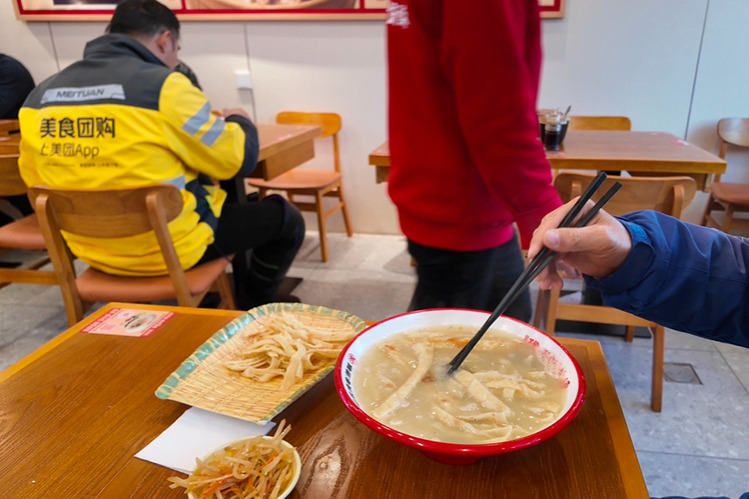Family gladly donates the treasure in their veins


Over the course of 19 years, members of one family from Nanchang in East China's Jiangxi province have donated 136,100 milliliters of blood and have maintained their routine to encourage others to follow suit.
"Donating blood has become a habit. Even when I travel somewhere, like to Heilongjiang or Henan (provinces), I go to the local blood center to donate," said Ma Chaojin, a member of the family.
The 44-year-old salesperson, who is always away on business trips, said that regular blood donation keeps him healthy, both physically and mentally.
"To make sure that I pass the pre-donation medical exam, I have to lead a self-disciplined, healthy lifestyle. One week before donation, I can't have any medicine, drink alcohol or eat meat. I must also be well-rested," he said.
At first, Ma would donate 400 ml of blood every six months. From 2012, he began to donate apheresis platelets every six months. So far, he has donated platelets 116 times.
"Donating a moderate amount of blood helps promote blood production in the body, and the blood test results also help me better understand my physical condition," he said.
Ma Chaosheng, Ma Chaojin's elder brother, was nearly unable to make donations due to an unhealthy blood index.
When he went to make a donation, the 49-year-old, who teaches computer engineering at Jiangxi Agricultural University's Nanchang Business College, was found to have mild fatty liver disease. The discovery prompted him to begin exercising to improve his health.
"I was uncomfortable seeing my high index. After the test, I walked 10 kilometers a day for years, even on rainy days, and my index returned to normal," he said.
He clearly remembered donating blood for the first time on Oct 4, 2002.
He didn't feel any side effects, and two days later, he suggested his wife Peng Yiqin donate blood, too.
The 48-year-old Peng, who is a gas station attendant, has so far donated blood 112 times and is a volunteer at a blood donation service.
"I like volunteering. Blood donors and volunteers are generally sunny people, which makes their lives full of energy," she said. By now, Peng has volunteered more than 2,100 hours of her time and won the honorary title of "Five-star Volunteer" at the Jiangxi Blood Center.
Ma Chaosheng, Ma Chaojin and Peng have each donated blood more than a hundred times, the center said.
Ma Chaojin said that he and his family originally started doing it to save people.
In 2010, their father needed type O blood for gastric cancer surgery, but neither of them matched, so they turned to blood banks.
"Since we'd donated blood so many times, the hospital not only gave my father priority use, but also reimbursed us for cost of the blood," Ma Chaojin said.
"The experience made me realize that it is quite meaningful that we donated blood for so many years. I also felt a sense of urgency and the responsibility to help others through more donations. I don't know who my blood will help, but I'm sure it will go to those in need. I don't have a particular goal, and I'll donate blood whenever I have time," he said.
Ma Chaojin said that their father, who passed away in 2011, taught them not to do bad things and not to stop doing good things, however small.
He said that even a little kindness helps people shoulder their difficulties.
Their kind behavior has influenced others in a positive way. Ma Chaosheng's daughter, Ma Yidan, used to be afraid of injections, but she still chose to commemorate her 18th birthday by donating blood.
"Since we began donating in 2002, many people have followed suit. At the donation center near my home, up to 70 percent of the people in the room are acquaintances," Ma Chaojin said.
Despite this, he said the family has never tried to persuade others to donate blood unless they asked about doing it first.
"If we talked people into donating, the result would be counterproductive. Conversely, actions exert greater influence," he said.
For example, at dinner parties, Ma Chaojin might casually tell people that he can't drink or eat oily food because he is going to donate blood.
"That can help raise their awareness," Ma Chaojin said.
He does not think donations are harmful to his health.
"The staff at the blood center are professional and prevent potential harm to donors. In most cases, there is no need to worry. Also, the center has regulations and standards about the frequency of donations. It also adjusts the amount of blood taken according to a person's physical condition," he said.
An adequate, safe and constant blood supply is important for medical treatment and saving lives, according to the National Health Commission.
According to data from the commission, the number of unpaid blood donations nationwide rose from 328,000 in 1998 to 15.53 million last year, a 47-fold increase.
The blood donation rate per 1,000 persons in China has increased from 4.8 in 1998 to 11.1 last year.






























